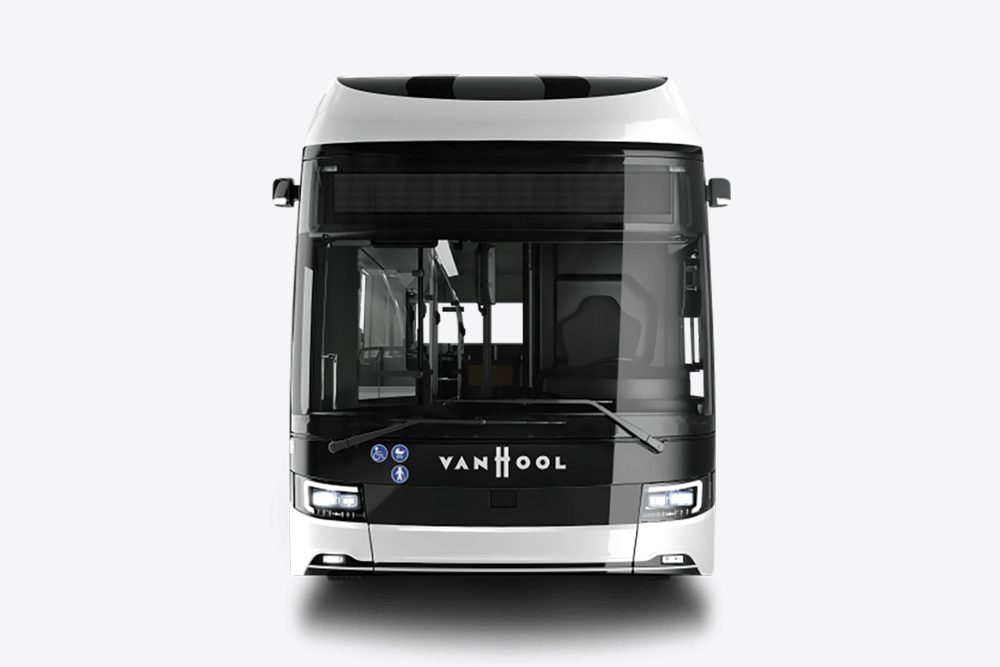Van Hool announces exit from electric bus business and faces unclear future
As the Belgian newspaper De Standaard reports, Van Hool’s management has come to the conclusion that it cannot compete in the city bus segment against Chinese companies such as BYD and large European manufacturers such as MAN and Solaris with plants in Poland. Van Hool now wants to focus entirely on (non-electric) coaches and trailers. There is much less competition for luxury coaches in particular. However, the electric city bus segment is growing steadily, while the coach business has slumped sharply during the coronavirus pandemic and has not yet fully recovered.
More and more transport companies are opting for electric buses. Van Hool can manufacture them, but does not really specialise in electric vehicle architecture. In the past, Van Hool primarily focused on hydrogen as the technology of the future and not on batteries. As a result, not enough procurement contracts were concluded for battery-electric buses and the company is now not getting enough parts for electric buses or has to pay excessive sums for batteries from Chinese manufacturers. As a result, the buses are significantly more expensive, with De Standaard citing an electric bus from Chinese manufacturer BYD as a comparison.
Van Hool has also put out its own press release on the subject, explaining that the ‘Van Hool Recovery Plan’ creates a “sustainable future on its own merits.” In the release, Van Hool cites the high costs of restructuring, as well as the organizational difficulty, and explains that it will have to fire around 1,100 employees in the period from 2024 to 2027. Co-CEO Marc Zwaanveld commented: “We understand the impact this plan will have on employees and their families, and it is hard for us to take this step. However, given the highly pressing situation the company finds itself in, it is truly necessary to take these measures to secure a sustainable future for Van Hool. With this Recovery Plan Van Hool remains a meaningful employer in Flanders.”
It is difficult to compete with European players such as MAN or Solaris, both of which manufacture vehicles in Poland and are heavily focussed on electric buses, as well as having placed their investments in the technology already. Van Hool recently lost a large order from De Lijn to the Chinese manufacturer BYD, which was 20 per cent cheaper than European bus manufacturers. However, De Standaard also refers to internal disputes within the Van Hool owner family. “The family is very divided internally, which has often led to wrong decisions being made in the past – such as deciding in favour of electric buses too late,” the newspaper wrote on the crisis at the company. In addition, the family had held on to a top manager from its own ranks for too long and had not opted for an external, experienced manager. Marc Zwaaneveld was only appointed as a crisis manager in January.
However, it is not just about a change of strategy for the models and the type of drive, but also about the locations. As a result of the reorganisation, Van Hool will no longer produce many coaches in Belgium, which means that many jobs in the Belgian factory, which employs 2,000 people, are likely to be lost. According to the Belgian media reports, “most or all” of the buses will be produced in North Macedonia. Van Hool already operates a plant there, which has been producing city buses up to now. If their production is discontinued, capacity will be freed up there – and the luxury coaches could be produced much more cheaply there than in Belgium. The calculation here is that Van Hool could undercut the competition on price.
However, the plant in Koningshooikt, Belgium, is apparently not to be closed completely: The trailer division is to remain, where 640 people are employed. The R&D department and part of the maintenance department would also remain. However, there is no confirmed statement on this yet, with different versions currently circulating. According to some reports, the complete end of the plant has been sealed as no industrial partner has been found. According to others, the search is still ongoing and has not been finalised. The lending banks are apparently favouring the option of an industrial partner taking over the company and thus bringing in money. Insolvency is also on the cards if the Belgian government does not intervene. There is talk of a sum of between 50 and 100 million euros that Van Hool would have to raise in order to cover its debts and the redundancy payments to the dismissed employees. Whether there will be any financial support, however, is also still open. If the information so far is correct, the policy would prioritise preserving jobs in North Macedonia – and not in Flanders.
vanhool.com, destandaard.be, destandaard.be, destandaard.be (last three in Dutch)





6 Comments